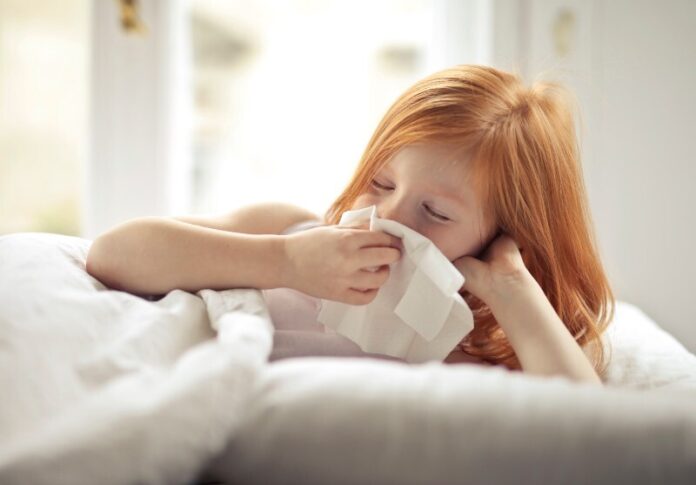by Kristina D. Chung, MD

As we head into the peak of respiratory illness season, keeping children healthy becomes a top priority. With cases of respiratory syncytial virus (RSV), flu and colds on the rise, taking proactive steps can help prevent these infections and reduce their impact.
One of the most powerful ways to stop the spread of viruses and germs is by teaching kids proper hand hygiene.
Encourage regular hand-washing with soap and warm water for at least 20 seconds, especially after coughing, sneezing or using the bathroom. For times when hand-washing isn’t possible, hand sanitizer can be a helpful backup. Since germs spread through airborne droplets, teaching kids the right way to cover their mouths when they cough or sneeze is also key to preventing germ spread. Show them how to use a tissue or the inside of their
elbow instead of their hands. It’s also important to regularly disinfect high-touch areas, such as doorknobs and light switches and wash toys and shared items frequently.
Nutrition also plays a crucial role in a child’s immune system which helps them fight off infections more effectively. Offer your child a balanced diet that is rich in immune-boosting foods, especially those containing vitamins A, C and D. Foods like oranges, carrots, leafy greens and fortified dairy products can help strengthen immune defenses. Ensuring your child drinks enough water will also help their body function optimally and naturally remove unwanted toxins. Adequate sleep also plays an important role. It is recommended that
children receive nine to 12 hours of sleep nightly to support growth and immune function.
Physical activity can further boost immunity while helping to reduce stress. Encourage your child to play outside, participate in sports or any other activities that get them moving each day. At the same time, it’s important to monitor for signs of illness, such as a runny nose, cough, fever or fatigue. If your child is experiencing any of these symptoms, consider keeping them home from school or day care to avoid spreading germs to others. Schedule a visit with your health care provider if symptoms persist or become worse.
Vaccinations can be an effective tool for preventing certain respiratory illnesses. Flu vaccines are widely recommended for children 6 months and older, and newer RSV vaccines have been introduced for more vulnerable populations. Speaking with your provider about vaccination options can help you determine what is the best choice for your child. Finally, stay informed about local health updates, especially when respiratory illness cases increase in the community or at your child’s school.
Taking these practical steps can make a big difference in reducing your child’s risk of illness this season. Taking a few preventive measures now can go a long way in keeping your family healthy and resilient throughout the winter months.
Subscribe to our FREE Newsletter

















